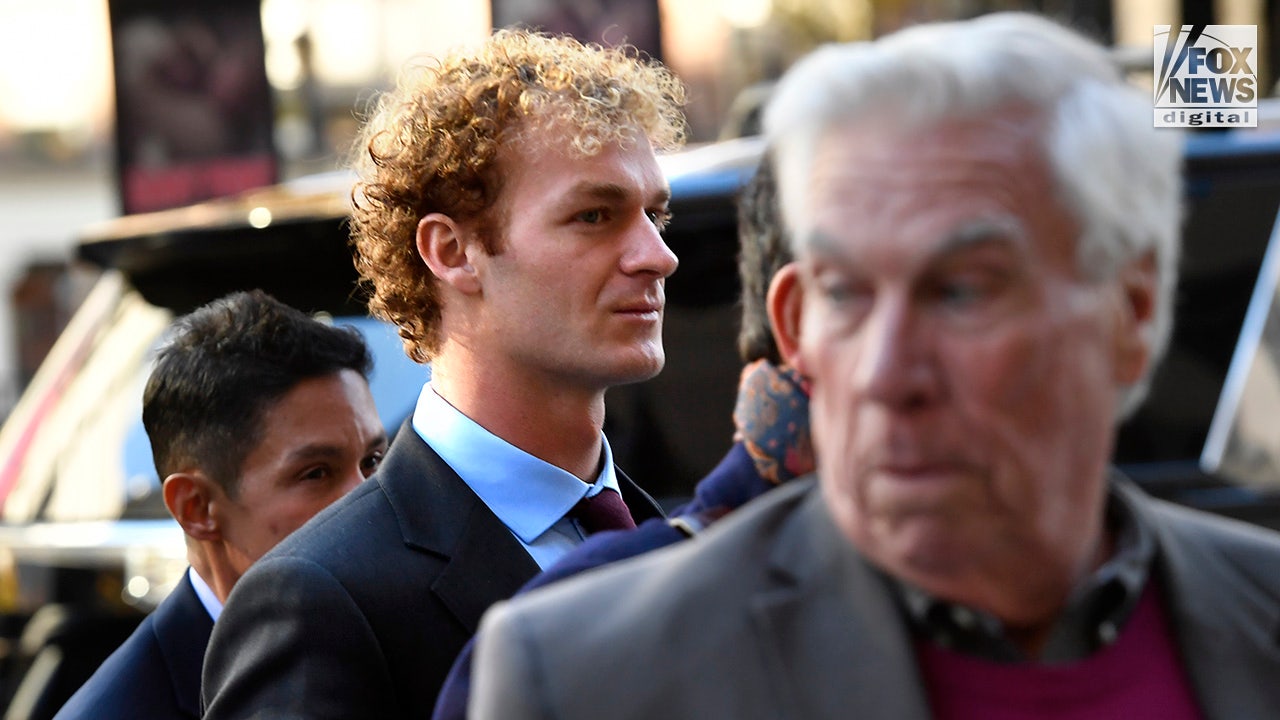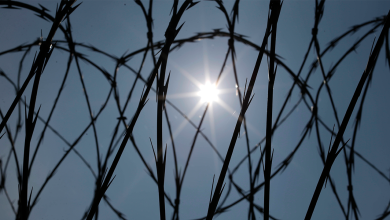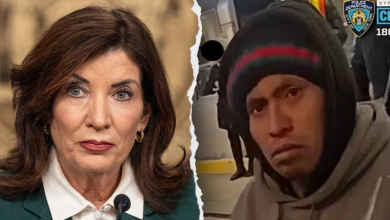NEW YORK — Manhattan prosecutors again accused Daniel Penny of failing to recognize the “humanity” of Jordan Neely during their closing arguments Monday, weeks after being accused of unfairly hinting at racial undertones in a case that does not involve hate crime charges.
“He didn’t recognize that Jordan Neely was a person,” Manhattan prosecutor Dafna Yoran told the jury. “He saw him as a person that needed to be eliminated.”
She claimed that Penny “was so reckless with Neely’s life because he didn’t seem to recognize his humanity.” She replayed video of Penny’s police interrogation, where he referred to Neely as a “crackhead” and told detectives, “You know these guys, they’re pushing people in front of trains and stuff.”
“We’ve all spoken dismissively about people like Jordan Neely,” she said. “Maybe we, too, have lumped them all together like this, but the context is very telling here. When the defendant is talking like this about Mr. Neely, he knows he very likely had killed him. Can you imagine a reasonable person speaking like this about a human being that he or she had just killed?”
DANIEL PENNY RETURNS TO COURT FOR CLOSING ARGUMENTS IN SUBWAY CHOKEHOLD TRIAL
Penny was not told about Neely’s death when he voluntarily agreed to speak with NYPD detectives.
Yoran used similar language earlier in the trial during her opening statement, and her team also allowed witnesses to describe Penny as “the White man” and a “murderer,” prompting Penny’s defense lawyers to object and ask the court to declare a mistrial over the language.
Saying Penny didn’t see the humanity in Neely unfairly invoked race, according to his defense, and combined with the other language, it would make it impossible to get a fair trial. The judge denied that earlier motion to declare a mistrial.
During the defense’s closing arguments Monday, which came before Yoran’s remarks, Penny’s defense attorney, Steven Raiser, argued that the 26-year-old architecture student stepped in after the city of New York failed passengers on the subway car when Neely, a 30-year-old homeless man high on drugs and suffering from schizophrenia, barged in and started threatening riders.
DANIEL PENNY DEFENSE CALLS FORENSIC PATHOLOGIST TO WITNESS STAND: ‘THE CHOKEHOLD DID NOT CAUSE THE DEATH’
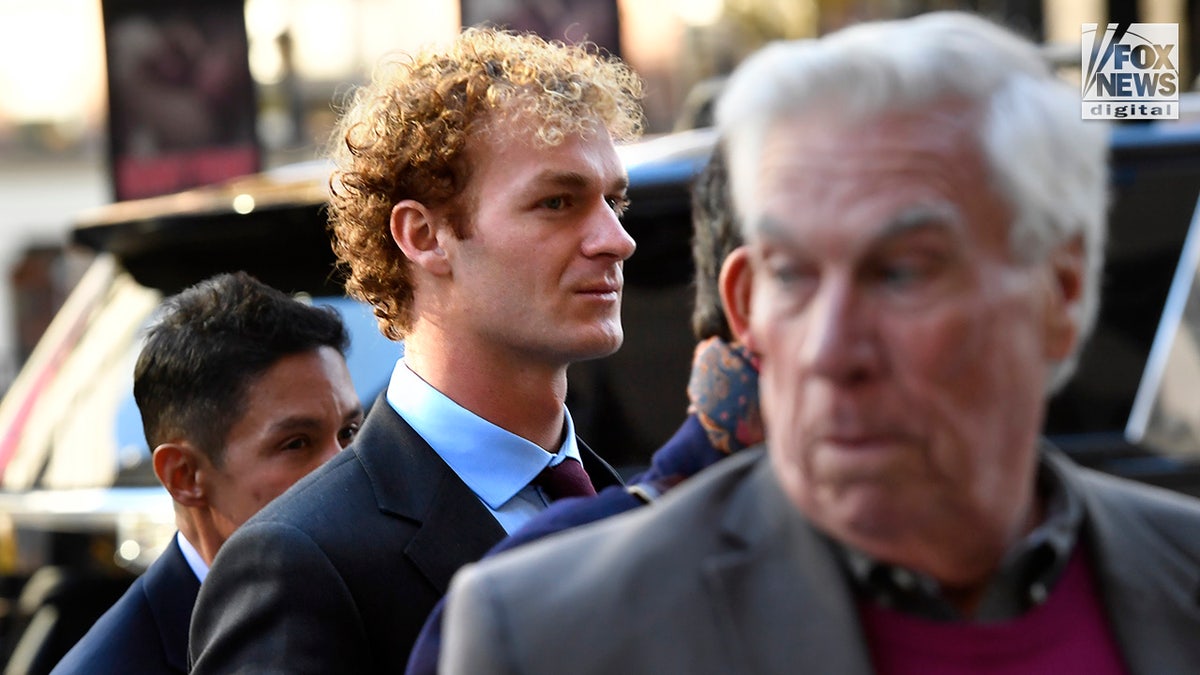
“The government wasn’t there. The police weren’t there. Danny was,” Raiser told the jury. “And when he needed help no one was there. The government has the nerve to blame Danny because police weren’t there? Blame Danny for holding on when police weren’t there?”
It took seven minutes for police to respond to the 911 call and 20 minutes before medics arrived, he said. Neely was “on a collision course with himself,” and a “broken system” failed everyone involved, the lawyer said.
Penny is on trial facing charges of manslaughter and criminally negligent homicide.
Neely had a lengthy arrest record, a documented history of severe mental illness, a drug abuse problem and an active arrest warrant when he boarded the F train car on May 1, 2023, and started screaming death threats, trial testimony revealed over the past three weeks.
Raiser noted that Penny used “a less aggressive” restraint than what he’d been taught in the Marine Corps, arguing he intended to hold Neely down but not hurt him.
“What Danny did was not textbook,” he said. “He applied what he learned as a Marine in a less aggressive manner … because the softer side of Danny informed him to apply something less than a textbook Marine blood choke, by choosing not to squeeze Neely to unconsciousness.”
DANIEL PENNY DEFENSE CALLS FORENSIC PATHOLOGIST TO WITNESS STAND: ‘THE CHOKEHOLD DID NOT CAUSE THE DEATH’
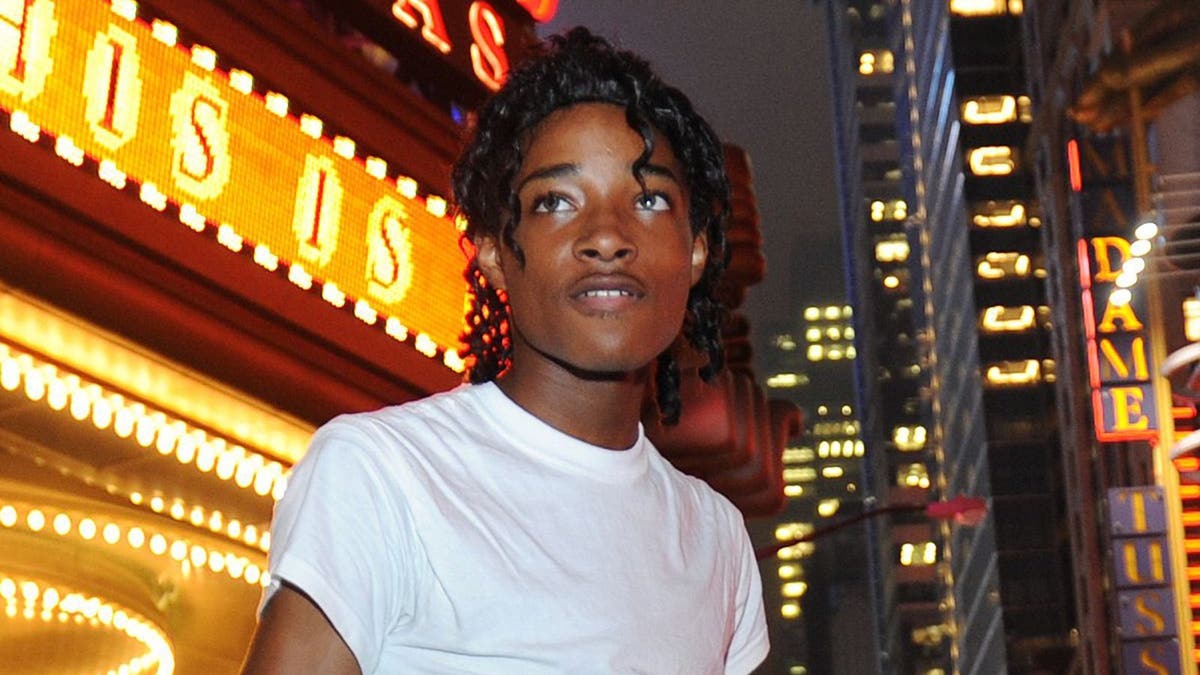
Penny repeatedly eased up when Neely stopped struggling and only squeezed to hold him down when he started trying to break free, Raiser said.
“When you have doubt that Penny squeezed Neely to the point of a chokehold death, you need to look for another cause of death,” he said, noting how defense expert Dr. Satish Chundru testified that he believed Neely had died from a combination of his use of the synthetic drug K2, his sickle cell genetic disorder, psychosis and exertion from the struggle.
“Danny could not foresee a sickling death,” the lawyer said. “So he is not guilty.”
DANIEL PENNY DEFENSE RESTS AS FINAL WITNESS REVEALS JORDAN NEELY HAD OPEN WARRANT, DEFENDANT DOESN’T TESTIFY
Chundru’s testimony contradicted the official autopsy findings of Dr. Cynthia Harris of the New York City medical examiner’s office who blamed Neely’s death solely on the chokehold after watching video of the altercation before toxicology results had come back.
The defense also replayed bodycam video of responding officers, with one of them repeatedly saying Neely was still breathing.
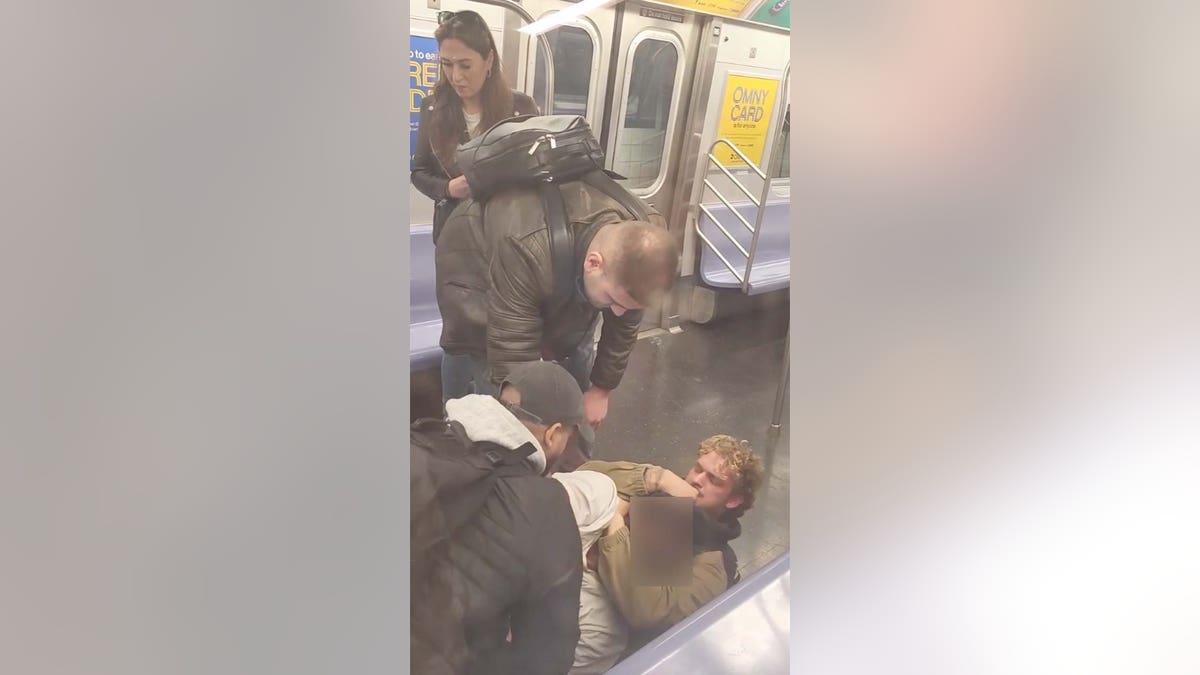
Raiser painted a scene for the jury: The F train pulled into a station and the “tall and muscular” Neely stepped on board, shouting erratically, high on drugs. Neely had schizophrenia and a severe case of paranoia and psychosis, he said. The former Michael Jackson impersonator hallucinated conversations with the late rapper Tupac Shakur and thought he heard the devil’s voice. Neely stormed onto the train, threw his jacket on the floor and declared that he didn’t care if he died or wound up in prison, allegedly threatening to “kill a motherf—er.”
“Will it be me? Will it be my children?” Raiser asked. “Everyone was frozen with fear.”
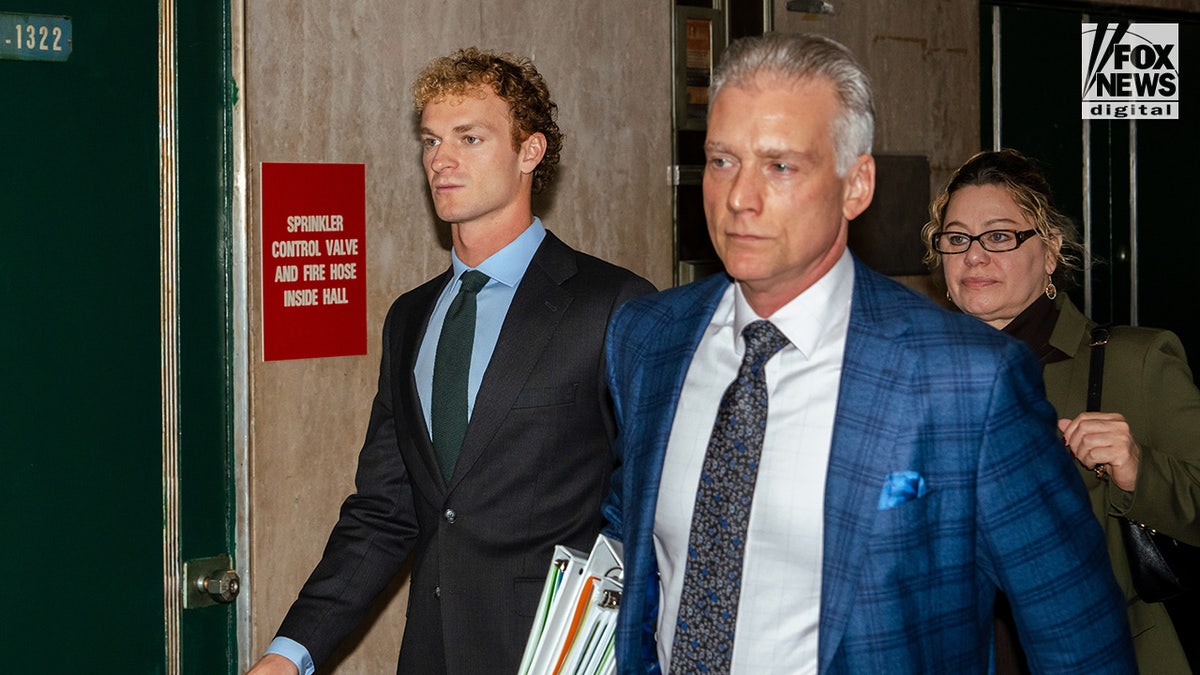
He went through testimony from multiple female passengers, each of whom described fear and panic. He replayed bodycam footage from officers who spoke with them at the scene. They all had the same thing in common, he added.
“Daniel Penny is the one to protect them,” he said. “Why? Because he had something unique to him: his training. When Danny acted, he didn’t know if Jordan was armed.”
Some of those passengers braved protesters outside the courthouse to repay the favor, risking their own safety to testify at trial, he added.
He played 911 calls: early reports of a knife or gun, confusion and a delayed police response.
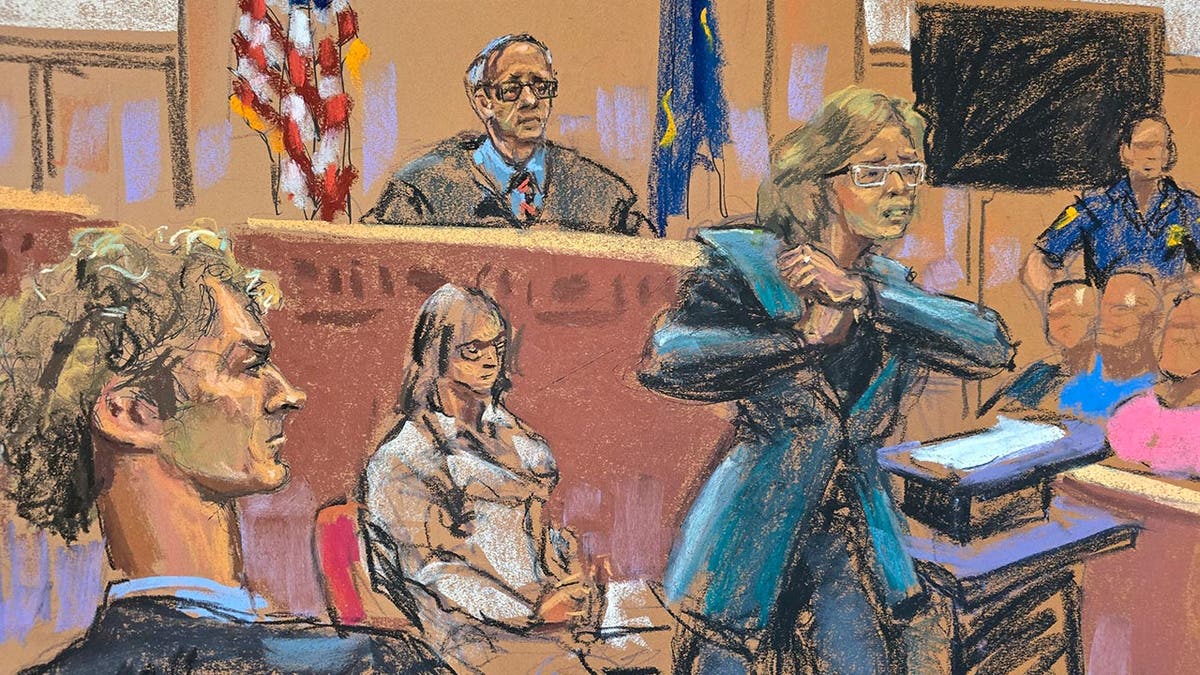
Penny waited until officers arrived, he said, then spoke with them willingly without a lawyer present, unaware that Neely had even died.
Yoran gave a closing on behalf of the prosecution.
“No one had to die on May 1, 2023,” she said. “Jordan Neely did enter the subway car in an extremely threatening manner … so much less physical force would have done the job … Daniel Penny easily could have restrained Neely without choking him to death. We are here today because the defendant used way too much force for way too long in way too reckless of a manner.”
Yoran argued that Penny could have let go when bystanders asked him to, replaying video of the incident repeatedly, some of it hard to hear in court.
She alleged that Penny knew Neely was “likely” dead but didn’t care when he remained at the scene and voluntarily spoke with police officers. They didn’t tell him Neely was dead, and they didn’t arrest him. He surrendered 11 days later after Manhattan District Attorney Alvin Bragg’s office secured a grand jury indictment against him.
If jurors don’t reach a consensus by the end of the day Tuesday, Judge Maxwell Wiley asked them to return Wednesday to continue deliberations. Since the start of the trial, the court had been in recess on Wednesdays.
Penny faces a maximum of 15 years in prison if convicted of the top charge of manslaughter. He is also accused of criminally negligent homicide.
Read the full article here

